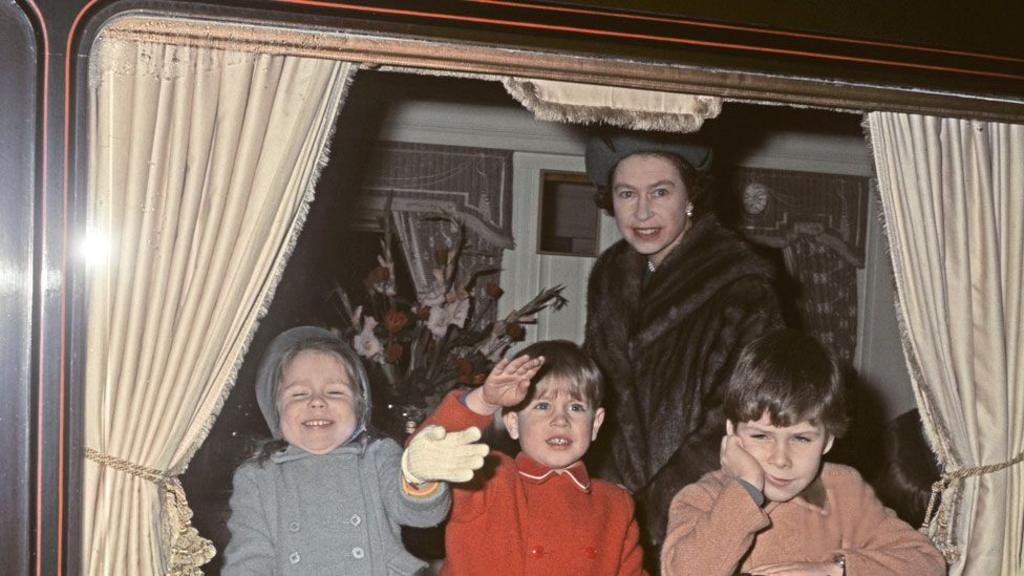Buckingham Palace has announced that the royal train will be decommissioned by 2027 as part of a cost-saving initiative.
Dedicated trains have served monarchs since the reign of Queen Victoria. However, in a move described as a “drive to ensure we deliver value for money,” the historic rolling stock will be retired from service.
The announcement coincided with the release of the annual royal finances, which revealed that a two-day journey on the royal train in February, traveling from Gloucestershire to Staffordshire and then London, cost over £44,000.
The Royal Family will continue to utilize regular train services. The annual report also indicated that 141 helicopter trips were undertaken last year, totaling £475,000.
James Chalmers, the Keeper of the Privy Purse, who oversees royal finances, acknowledged that retiring the royal train would mean “the fondest of farewells,” but emphasized that “in moving forwards we must not be bound by the past.”
Before its decommissioning, the royal train will tour the UK, after which it may be put on public display. The royal train comprises nine carriages, pulled by various hired locomotives.
The concept of a royal train dates back to 1869, when Queen Victoria commissioned special coaches for the Royal Family’s travels throughout the country.
“The royal train, of course, has been part of national life for many decades, loved and cared for by all those involved,” Mr. Chalmers stated.
The train was extensively used for events during the late Queen Elizabeth’s Golden and Diamond Jubilees, with the most recent carriage updates occurring in the mid-1980s.
However, the latest accounts for 2024-25 indicate that the train was only used on two occasions, raising concerns about maintenance and storage expenses.
These costs are in addition to other travel expenses, such as 55 private charter flights costing nearly £600,000 and scheduled flights totaling £126,000. The total cost of royal travel amounts to £4.7 million, a £500,000 increase from the previous year.
The King and Queen’s trip to Australia and Samoa accounted for the single largest travel expense, at £400,000.
The financial report for 2024-25 shows the Sovereign Grant remaining at £86.3 million. This grant provides public funding for the monarchy’s operating costs, including official travel, staffing, and the upkeep of royal residences.
The funding level for 2025-26 is set to increase to £132.1 million, with this higher level maintained for two years to complete renovation work at Buckingham Palace.
The £369 million, 10-year building scheme at Buckingham Palace has driven up the Sovereign Grant, which, in real terms, is now approximately three times higher than when the Sovereign Grant funding was introduced in 2012.
Funding is provided by the Treasury, with the amount based on a percentage of the Crown Estate’s profits.
This year’s annual report indicates that the Royal Family carried out over 1,900 engagements, with nearly 94,000 guests attending events at royal residences.
Diplomatic events were also held, including hosting Qatar’s state visit to the UK.
A financial report for the Duchy of Cornwall, the estates providing income for the Prince of Wales, showed a profit of £22.9 million, slightly down from the previous year.
Following media criticism of the duchy’s finances, Kensington Palace has stated that the emphasis will be on achieving a positive social impact.
Will Bax, the duchy’s new secretary, stated that a “modern, socially minded” approach would be adopted, potentially including rent waivers and 50% reductions for certain charitable organizations and community groups.
Mr. Bax acknowledged that this would entail “significant sums,” but emphasized that it was part of a focus on transforming the duchy into a social enterprise, supporting communities, and reflecting Prince William’s interest in initiatives such as reducing homelessness and addressing climate change.
Anti-monarchy campaigners Republic criticized the levels of royal income at a time when debates about “cutting welfare for people with disabilities” were taking place.
Republic’s chief executive, Graham Smith, described royal funding as a “scandalous abuse of public money,” noting that published figures did not include costs such as security.
Sign up here to get the latest royal stories and analysis every week with our Royal Watch newsletter. Those outside the UK can sign up here.

